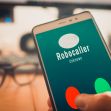In a recent opinion crossing ideological lines, the Supreme Court stated at least one incontrovertible fact: “Americans passionately disagree about many things. But they are largely united in their disdain for robocalls.” An annoyed customer pointed out the Court’s wisdom in a class action complaint filed in the Northern District of California against DoorDash, alleging that the company’s obnoxious robocalls violate the Telephone Consumer Protection Act (TCPA). Another putative class action was recently filed in the Northern District of Illinois, taking similar umbrage with the delivery company’s tele-faux pas.
Like UberEats, GrubHub, and Postmates, DoorDash is a food delivery service that contracts with delivery drivers to take food to hungry customers. Customers place an order through the DoorDash website or phone app, and the food is delivered by a driver affiliated with the company. As part of its business, DoorDash makes phone calls to restaurants listed as DoorDash vendors as well as to DoorDash customers. These calls may be meant to check the vendor’s business hours, for example, or to communicate with a customer about a pending delivery.
The complaints allege that DoorDash does not stick to calling vendors and customers, however. DoorDash has been placing calls using pre-recorded messages and artificial voices (robocalls) to people entirely unaffiliated with DoorDash--neither customers nor vendors nor drivers. The calls may, for example, pertain to a different customer or vendor. These calls continue even after the recipients explicitly opt out, asking DoorDash to stop. Individuals and restaurants alike have been hit with unwanted calls at all hours of the day and night. A California plaintiff alleged that he had received more than 40 pre-recorded calls from the delivery service, many of which occurred before 5:00 a.m. Shockingly, the Illinois plaintiff alleges that they had received at least 242 calls from DoorDash by the time of filing, including around 203 utilizing a pre-recorded/artificial voice.
The complaints allege that such conduct is prohibited by the TCPA. The TCPA prohibits automatic, pre-recorded calls made to residential phone lines (including cell phones), and applies to consumers who do not have an “established business relationship” with the caller. Those with a prior business relationship (such as an old customer) can opt out of such communications, and the caller must comply with the opt-out request. The Illinois plaintiff seeks to stop DoorDash’s unlawful calling practices as well as to collect statutory damages for the class--$500 per TCPA violation and $1,500 per “willful” violation.
Prior robocall cases against DoorDash have been voluntarily withdrawn, but the Illinois case has brought DoorDash’s robocalling conduct back to the courts. The class action seeks to certify two classes of aggrieved consumers: (1) all people who received unsolicited robocalls within the time frame; and (2) all people who received unsolicited calls from DoorDash after explicitly requesting not to receive such calls.






